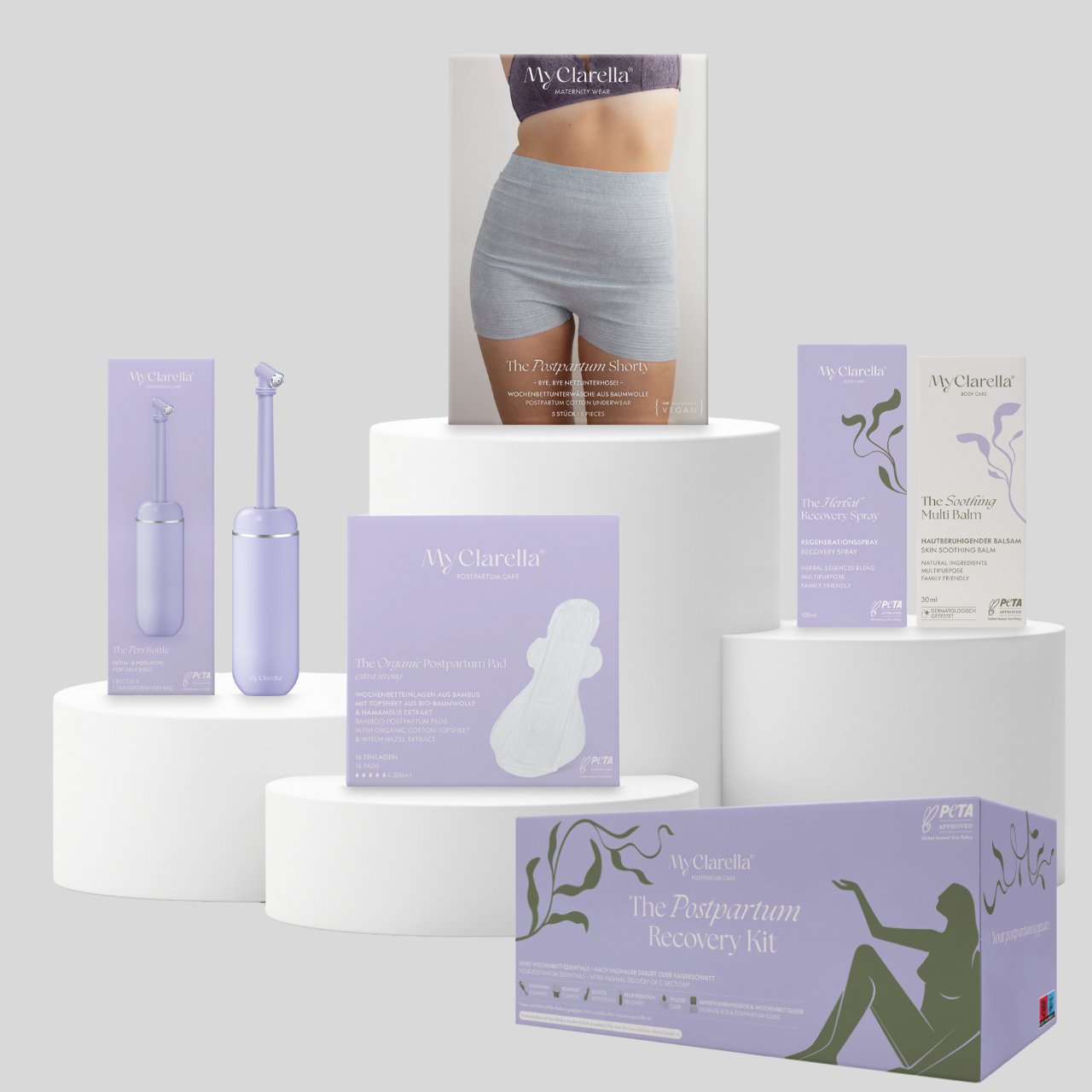In the first few weeks after giving birth, a lot of time revolves around your body regenerating and healing wounds. But it is also when you and your partner, if applicable, get used to your new roles. Dynamics change, new tasks must be mastered and the space for interpersonal relationships quickly becomes scarce. Therefore, it is not only necessary to adapt your relationship to the new conditions. The topic of sex after giving birth also raises questions for many couples and can quickly become a test of endurance.
It’s okay how you feel – no matter how you feel
The weeks after giving birth are typically characterized by little sleep and a lot of stress. The baby will probably take up most of your attention and will be close to you most of the time - peace and time to relax are rare. In addition, hormone production in your body decreases compared to pregnancy, which can negatively impact your mood. So it's understandable if sex isn't your top priority.
How soon after giving birth you feel like having sex depends on various factors and cannot be answered in general terms. People who generally have strong sexuality may want to be active again sooner than couples for whom intimacy was less important beforehand. Ultimately, the important thing is that you take the time you need.
Please be aware that it is OK how you feel - no matter how you feel. The desire for sexual interaction is just as OK as not feeling any desire. The same applies to your partner, of course. As is often the case in interpersonal relationships, the key is open and honest communication. If you talk about how you feel, what you miss, or what you want, you can create honest expectations. Intimacy does not only work through sex and certainly not with pressure. If possible, take time for each other and try new forms of closeness. Together you now have the chance to rediscover your intimacy in the changed reality of life. This also helps to avoid insecurities and conflicts and no one has to feel pressured into anything.
The body needs time to heal
In addition to emotional and psychological capacity, the question of the physical situation arises: when is it possible to become sexually active again after giving birth? There is no general answer because each body is different - this also applies to regeneration after giving birth.
In most cases, pregnancy and the birth process put a lot of strain on the body. Depending on whether you gave birth vaginally or by cesarean section, there may be different injuries and wounds that you should give the body the possibility to heal. One indicator of your body's regeneration and healing is your lochia, which removes wound secretions, cell residue, bacteria, and other remnants of pregnancy. It is widely believed that penetrative sex is only possible once the lochia has subsided, but in reality, your body may be able to do it sooner.
Ultimately, the answer to the question of when you can have sex again depends on how you feel. It is important that you listen to your body and do not force yourself to do anything. Take it slowly, with or without a partner, and see what works and feels comfortable. Above all, you must communicate your limits clearly: If you notice something is uncomfortable or even painful, it is usually better to be cautious or wait. For example, if your breasts hurt because your milk is coming in, you can try breastfeeding or pumping beforehand, or ask your partner to concentrate on other parts of your body first.
There is still a relatively widespread concern that the intimate area will change during the birth process in such a way that sexuality will be affected. Of course, stretching and injuries can occur during a vaginal birth. And although the body is designed for subsequent regeneration, the intimate area may change compared to before. However, sexuality and pleasure are not usually affected by this. If you want to support your body in its regeneration, postnatal and pelvic floor exercises can help.
Find the right contraceptive method for you
One topic that should not go unmentioned at this point is contraception after giving birth. Many breastfeeding mothers rely on the natural protection provided by the hormone prolactin released during this process. However, a certain amount of caution is required here. This method only works, if at all, if you have not yet had a period, are not feeding the baby additional food, and are breastfeeding regularly and fully. But even then, breastfeeding is not a safe method of contraception.
If you want to be on the safe side, you can resort to some classic contraceptives:
- On the one hand, the condom can provide relief because it not only protects against infections of birth wounds during the lochia but also against other sexually transmitted diseases.
- It is possible to use a diaphragm. If you have used one before, it is advisable to check the size and fit again, as these may need to be adjusted.
- There are also hormonal methods that work based on the hormone progestogen. These include the mini-pill, three-month injection, hormonal coil, and implant.
However, if you are breastfeeding or pumping, hormonal products that contain estrogen are unsuitable. This hormone can be passed on to the child via breast milk and can affect milk production. Feel free to talk to your gynecologist about your options and which method works best for you.
The challenge can become an opportunity
The first sex after giving birth can easily be a test of endurance for couples, regardless of the type and constellation. Do not force yourself to do something that is not good for you because of expectations. Respect the limits of your body and speak honestly about the wishes and needs of both of you. In the best-case scenario, this challenge can even become an opportunity to experience sexuality and intimacy anew and to develop the relationship further. And if that means that you remain sexually inactive for a longer period, that is also completely fine. If you are unsure, you can of course always contact your gynecologist. They will also help you choose the right contraceptive for you.
Author: Constanze Dochantschi





Leave a comment
All comments are moderated before being published.
This site is protected by hCaptcha and the hCaptcha Privacy Policy and Terms of Service apply.